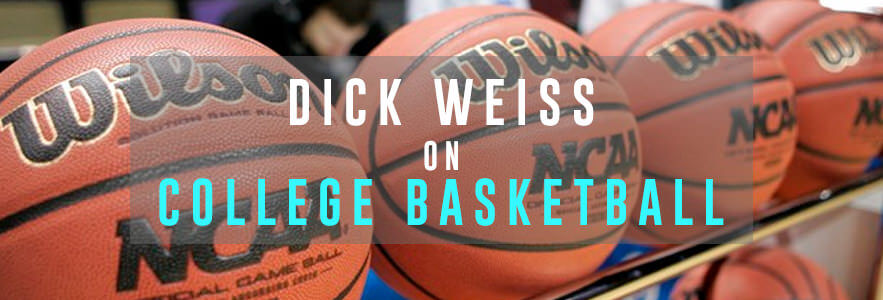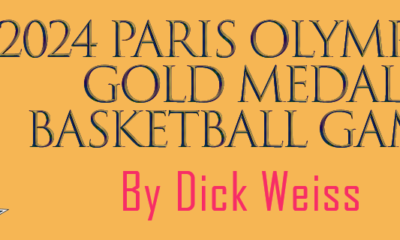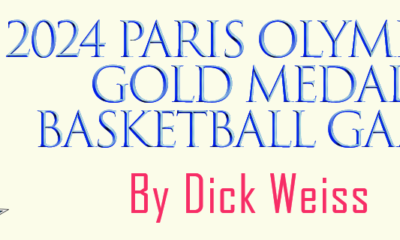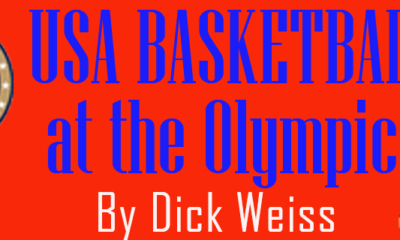
Dick Weiss on College Basketball
A federal jury in New York Wednesday convicted former runner and aspiring agent Christian Dawkins and former Adidas consultant Merl Code for their roles in bribing basketball assistant coaches to steer players to sign with Dawkins’ start up sports management company and certain financial advisers once they turned pro.
Jury deliberations in the two-week trial took parts of three days.
Dawkins was found guilty of bribery and conspiracy to commit bribery. Code was convicted of conspiracy to commit bribery. Dawkins had been facing six total charges and Code four.
“While the convictions of Dawkins and Code mark the culmination of the criminal charges announced by this office in Sept. 2017,’’ U.S. attorney Geoffrey Berman said in a statement, “they should make clear to those who might be tempted to engage in this sort of misconduct these prosecutions have only begun to expose: that bribery is a crime, one this office is prepared to charge criminally and prosecute to the full extent of the law.’’
U.S. District Court Judge Edgardo Ramos will sentence Code and Dawkins at a later time. Dawkins and Code had been accused of giving thousands of dollars in bribes to three former assistant coaches: Book Richardson of Arizona, Tony Bland of USC and Lamont Evans of South Carolina and Oklahoma State. Steve Haney, Dawkins attorney, said his client was found guilty of conspiring to bribe and bribing Evans. The jury found him not guilty of bribery charges related to Bland and Richardson.
“We felt the jury spoke,’’ Haney said. “They believed the universities were not deprived of their honest services. They essentially believed the universities were not victims. It would have been nice to walk out of there no guilty on everything, but that was unrealistic considering the evidence.’’
Each of the former assistant coaches pleaded guilty to one felony count of conspiracy to commit bribery in January.
But the case never lived up to the hype.
There were some bombshell accusations on tape involving Arizona and star center Deandre Ayton, but it is hard to tell whether the general public cares about the outcome of this case. It might have generated much bigger news if there were big-name head coaches who were caught up in the net. Dawkins said afterwards he could have chosen to cooperate with prosecutors and identify the coaches he knew were willing to funnel money to elite players. “I could have,’’ he said. “Anybody who’s paying players to me is a good guy. I think the whole case is BS, so I wouldn’t have cooperated.’’
“He could have brought the whole world of college athletics to his knees and he chose not to,’’ Haney said. “I’m not going to give you the names of 15 to 20 coaches.’’
The NCAA has investigators on the campus of Arizona but if they choose to do nothing about any of the schools mentioned in the three trials. the organization will come across as a paper tiger who only cares about money it can make off the tournament and doesn’t care about the integrity of the sport. .
Code said afterwards there was no evidence in the trial he bribed anybody.
Attorneys for both defendants had argued that their clients set up meetings with coaches only at the urging of an undercover FBI agent, who was posing as an investor in Dawkins’ company. But the government countered that argument by playing a surveillance video from a meeting in Las Vegas that showed Dawkins giving envelopes of cash to assistant coaches.
It was the second time Code and Dawkins and have been convicted on charges related to corruption in the sport. In October, a jury convicted the two and Adidas executive Jim Gatto Jr. for their roles in a pay-for-play scheme to steer blue chip players to Adidas-sponsored schools, including Kansas, Louisville and NC State. Judge Lewis A. Kaplan sentenced Gatto to nine months in federal prison; and Code and Dawkins to six months apiece.










